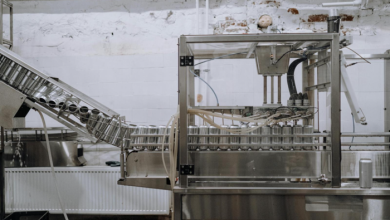
For many people, coffee is a part of their morning routine, a kickstart to get them going for the day ahead. Yet, others diagnosed with Attention Deficit Hyperactivity Disorder (ADHD) respond in a way that may even be counterintuitive. Rather than feeling more awake, they are more lethargic. Now, the situation raises the question of how caffeine consumption affects individuals with ADHD. Knowing this unique interaction helps us understand the more significant impact of caffeine on people who have ADHD.
The Effects of Caffeine
It’s fascinating to explore the reasons behind “Why does coffee make me tired? ADHD can be the reason behind it. Caffeine is a naturally occurring stimulant in coffee, tea, and many fizzy drinks. Its primary mechanism of action is in the central nervous system, specifically blocking adenosine receptors. Adenosine is a neurotransmitter that brings on sleep and relaxation. Caffeine usually increases alertness and decreases fatigue by preventing the action of adenosine. It is this effect that the majority of people want from their cup of coffee.
ADHD and Brain Chemistry
ADHD is a neurodevelopmental disorder that impacts attention, impulse control, and activity levels. Parkinson’s disease is associated with decreased dopamine, a neurotransmitter that mediates the sensation of reward and pleasure. Most ADHD treatments work by increasing dopamine levels, creating a stronger desire to pay attention and resist hyperactive behavior. The link between dopamine and caffeine could explain why some people with ADHD stay drained on coffee instead of being energized by it.
Caffeine’s Role in ADHD
Caffeine is processed differently in the brain chemistry for people with ADHD. It blocks adenosine but may also affect dopamine in less-understood mechanisms. Some speculate that caffeine could boost dopamine transmission, though this difference appears to vary widely per individual. That variability may cause different results, such as drowsiness/relaxation vs. stimulation, etc.
Sensitivity and Individual Differences
Keep in mind that there are always individual differences regarding how caffeine affects people with ADHD. Sensitivity to caffeine can depend on genetic, medication, and health factors. Caffeine metabolism can vary among individuals, leading to different responses. The argument also emphasizes the necessity of personal observation and knowing how you respond to coffee or any other caffeinated beverage.
The Paradox of Calmness
For some, the opposite mood, or calm, comes with the consumption of coffee. It may seem counterproductive, but it’s a fairly common reaction from a boxer with an ADHD mindset. Because caffeine interacts with dopamine and other neurotransmitters, its effects can be calming and soothe anxiety or hyperactivity. The relaxation makes the body less alert rather than more alert, which may be responsible for the calmness associated with sleepiness.
Required Interaction with Drug
Formerly, people with ADHD used a few sorts of medication, such as stimulants, to regulate symptoms. These medications raise dopamine, which helps concentration and reduces impulsivity. The effects might be unpredictable if you combine them with caffeine. For some, coffee may be the perfect accompaniment to their medicine; others feel increased side effects or diminished benefits. Talking to a doctor about how much caffeine to consume can create an individualized plan that works for each person.
Exploring Alternatives
If coffee makes you sleepy, explore some alternatives — it might be helpful! A more ideal alternative could be tea, which provides a different composition of caffeine and other substances. Caffeine-free herbal teas can provide the same warmth and coziness without the surprise sleepiness. Furthermore, diet, exercise, sleep, and other lifestyle components can help boost overall energy and alleviate discomfort.
Conclusion
However, the relationship between ADHD and coffee is more complex. For the general public, caffeine is commonly perceived as a stimulant, but for many of us with ADHD, this assumption does not align with our experiences. Things like brain chemistry, the degree of sensitivity, and medication can all affect the results. Identifying and interpreting these singular reactions can help humans realize the implications of drinking caffeine. It is crucial to explore alternatives and guide yourself to personal needs so that you are well-balanced with ADHD without causing fatigue accidentally.




